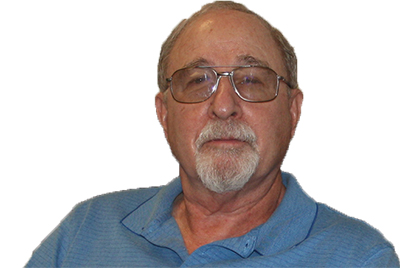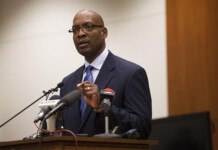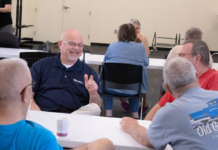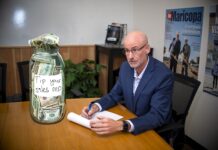
By Murray Siegel
The voters of Maricopa demonstrated their support for improving the level of learning in MUSD schools by voting for the override proposal on the November ballot. The override funds primarily will be used to hire additional teachers to reduce the size of classes throughout the district.
Research has proven smaller class size has a significantly positive correlation to improved student learning. Many of the new teachers will be recent graduates of university teacher training programs. Since mathematics is a part of the elementary curriculum that needs improvement, what are the universities doing to better prepare future elementary teachers to teach math?
To answer this question, two Northern Arizona University (NAU) faculty members who are deeply involved in the mathematical preparation of elementary teachers were contacted. One is a professor of mathematics and the other a professor of teaching and learning in the College of Education. Pre-service teachers (the term used to describe future teachers) at NAU take two mathematics content courses. The mathematics faculty believe a third course is required to properly prepare these future teachers.
A reader might ask, “So, why do they not simply require this third course since math is vital in the elementary grades?”
There is a limit on the number of courses required to receive a degree at any university and departments fight over the number of courses they are assigned for a degree program. More courses mean more students, which causes the need for additional faculty, and that means more funding for the department. (Perhaps voters should contact state representatives and demand an increase in the number of math courses pre-service elementary teachers are required to take.)
In the College of Education at NAU, elementary teacher candidates take a math methods course where students delve into the importance of a positive attitude towards math and investigate various methods of delivering elementary math content. The ultimate goal of this course is to have graduates who are well prepared to teach math in the elementary grades and who, with experience, will become educational leaders.
A number of the faculty in both the content courses and the methods course have actual experience teaching in elementary school. That experience informs how these faculty prepare their students for the reality of teaching at an elementary school.
Theory is fine, but practical experience is vital in teacher training. Would a patient about to have serious surgery care if the surgeon went to a medical school where all the professors knew surgical theory but had no experience in the operating room? Obviously, lack of surgical experience would be a concern and the same should be true in our schools that prepare future teachers.
Murray Siegel has a PhD in MathEd and 42 years of teaching experience. He and his wife Sharon are volunteer teachers of advanced math classes at Butterfield Elementary School.
This column appears in the January issue of InMaricopa.


![Who’s the Best Mom InMaricopa? NOMINATE NOW! Marlene Marshall, Christina Olivares, and Meghan Bremer. [Bryan Mordt]](https://www.inmaricopa.com/wp-content/uploads/2023/05/BCM_8465-218x150.jpg)







![City gave new manager big low-interest home loan City Manager Ben Bitter speaks during a Chamber of Commerce event at Global Water Resources on April 11, 2024. Bitter discussed the current state of economic development in Maricopa, as well as hinting at lowering property tax rates again. [Monica D. Spencer]](https://www.inmaricopa.com/wp-content/uploads/2024/04/spencer-041124-ben-bitter-chamber-property-taxes-web-218x150.jpg)


![Province writer opens the athlete’s mind in new book Tom Schuman, a Province resident, poses with a copy of his new book, "My Wide World of Sports," outside his home on May 2, 2024. [Monica D. Spencer]](https://www.inmaricopa.com/wp-content/uploads/2024/05/spencer-050224-tom-schuman-sports-book-web-01-100x70.jpg)


